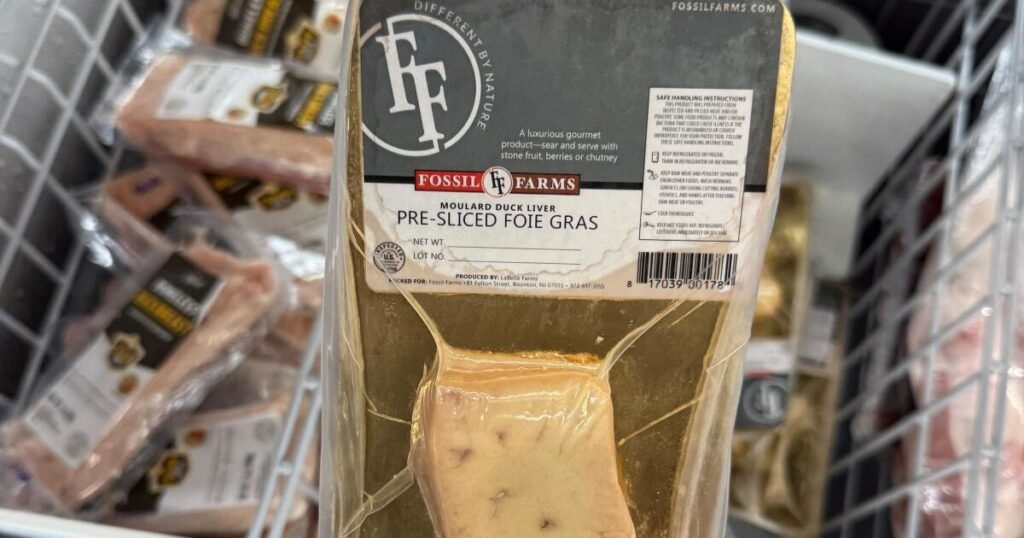Even though California has banned foie gras, stores in Southern California still offer it for sale.
This delicacy, made from the liver of ducks and geese, was found recently by Times journalists at Wild Fork Food locations in Venice, Manhattan Beach, and Westlake Village.
Ben Williamson, the executive director of Animal Outlook, came across this information through Yelp reviews, discovering that foie gras was indeed available in California. One satisfied buyer even shared their surprise at finding it there, saying, “I never thought I could buy it in California.”
Wild Fork Stores had packaged Moolad Duck Liver Products from New York’s Label Farm, one of the country’s largest foie gras producers, priced at $10.98 per vacuum-sealed container.
After reaching out for comments, Times journalists revisited the stores and found that foie gras had vanished from the shelves.
Wild Fork Foods did not respond to inquiries, nor did JBS Foods, which is a major player in the meatpacking industry.
Additionally, Fossil Farms and La Belle Farms also chose not to comment.
Foie gras production involves force-feeding male ducks and geese multiple times daily, causing their livers to swell to over ten times their natural size. This method, which also increases fat content, results in the liver being creamy and highly sought after. The birds are often kept in cramped enclosures on intensive farms.
Williamson remarked that this systemic cruelty behind such so-called “luxurious” foods is one of the more egregious forms of animal abuse in modern agriculture.
In 2004, California passed Senate Bill 1520, which prohibits the force-feeding of birds to enlarge their livers. This law took effect in 2012 and has faced multiple challenges on constitutional grounds, claiming it infringes on interstate commerce.
The case has been rejected by the Supreme Court twice, the last time in 2023. In 2020, a judge allowed for out-of-state sales to individuals, yet blocked sales in California shops and restaurants, a ban that was reinforced by the 9th Circuit in 2022.
The District Attorney’s Office in Los Angeles County is responsible for enforcing local regulations regarding liver product sales.
“California Health and Safety Code violations are enforced by various state and local agencies, with the nature of violations determining who oversees them,” the District Attorney’s Office stated, noting they wouldn’t comment on ongoing investigations.
Other health and safety agencies in California, like the Department of Public Health and Food and Agriculture, indicated that the sale of foie gras falls outside their jurisdiction.
The office reiterated that if a product originates from the force-feeding process, it is not permissible for sale in California, with enforcement left up to local authorities.
California’s Attorney General Rob Bonta’s office, which has defended the state ban, mentioned that local law enforcement deals with these types of violations without providing any specific law interpretations.
Williamson noted that stores offering foie gras are uncommon in California and speculated that it might just “slip through the cracks” back to Wild Fork’s shelves.
He also highlighted challenges to the Animal Welfare Act during the Trump administration, which sought to overturn California’s Proposition 12 restricting animal confinement, potentially indicating the White House’s openness to contesting the foie gras ban.
However, the White House did not respond to requests for details.







